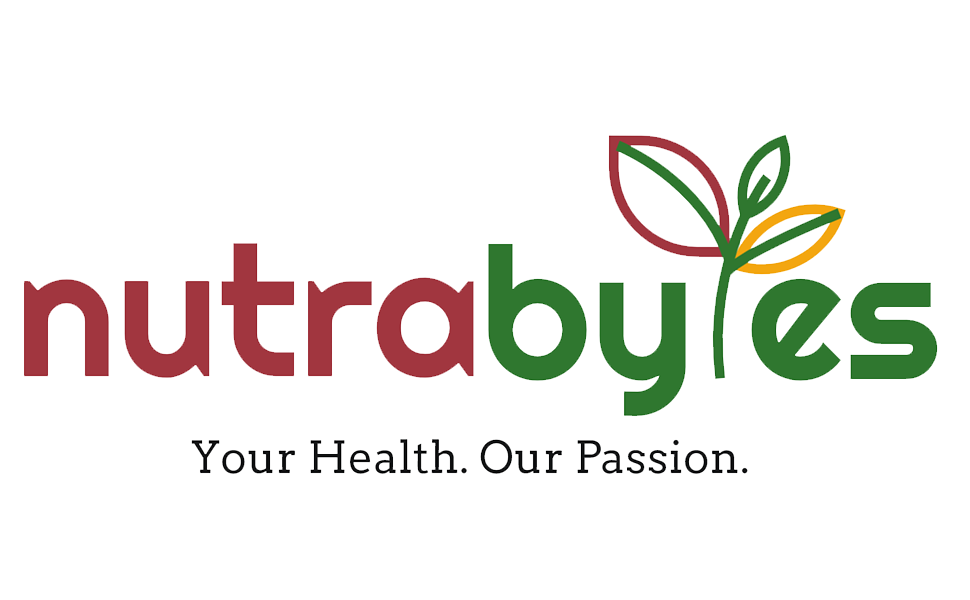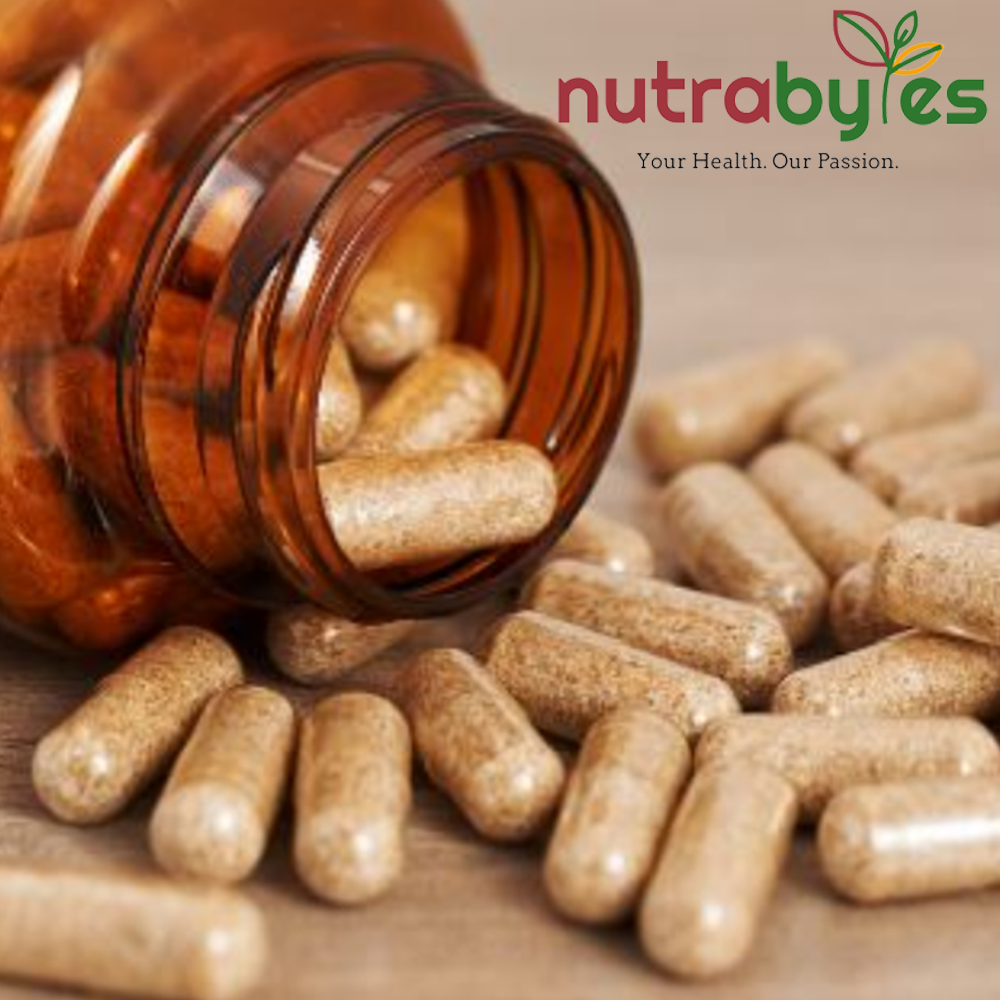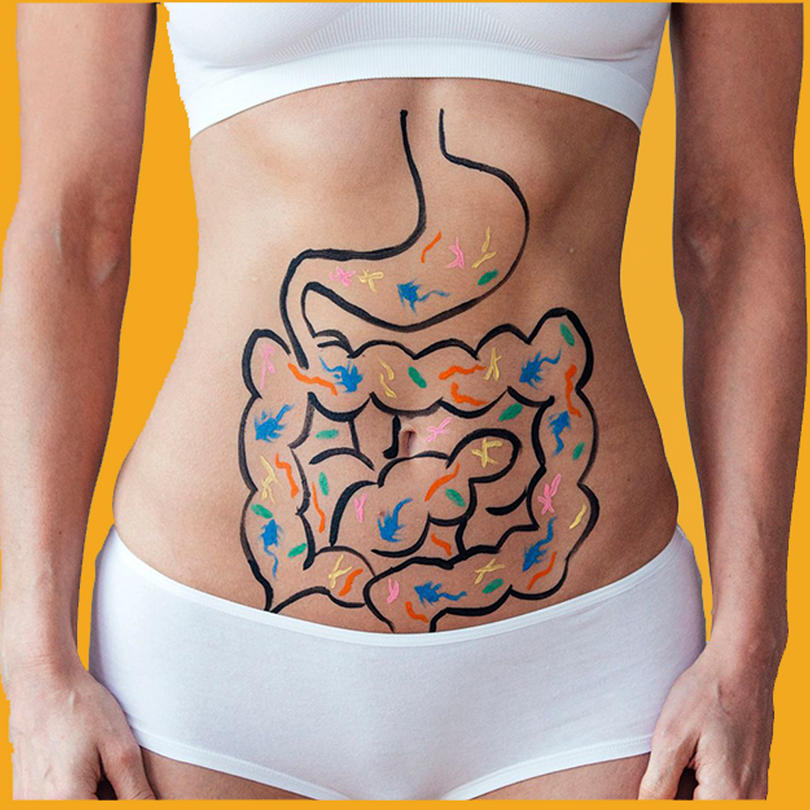Collagen peptides have been shown to improve gut health by strengthening the gut lining, reducing inflammation, and supporting the growth of beneficial gut bacteria.
(Kitaguchi, K., Sano, K., Yamakawa, A., Takagaki, K., & Watanabe, A. (2016). Ingestion of collagen peptide improves the permeability barrier function and viscoelastic properties of the stratum corneum. Journal of Nutritional Science and Vitaminology, 62(4), 223-230.)
The human gut is often called a second brain. Scientists and physicians over the years have studied the “gut-brain connection” and found that the gut behaves like another control centre of the body going so far as to impact the mood and overall health and wellness of a person.
It might be said that we are what we eat. Ever since the benefits of collagen came to light, people have been consuming it for the well-published and researched benefits for their hair, skin, nail and joint health. However, they are unaware that collagen also plays a vital role in the maintenance of a healthy gut.
Learn how collagen impacts gut health and consequently your overall health. Dive right in.
7 Reasons You Need Collagen For Gut Health
The gut starts from the oesophagus and goes right down to the rectum. It is responsible for digesting and absorbing nutrition from the food and drink that we consume. It is also a place where neurotransmitters like serotonin and dopamine are produced. These significantly impact the mood of a person.
Consuming collagen for gut health may benefit people as they age. Since our collagen levels decrease as we age, you may consume collagen in the supplement form and replenish those dwindling levels.
Consuming Collagen May Aid With Digestion
The second most abundant form of collagen in the body is Type III. This type of collagen is found in the intestinal lining of the gut (lamina propria) and is responsible for absorbing nutrients.
Having a robust intestinal wall helps to absorb nutrients efficiently as well as helping to prevent bloating and gas. One of the core benefits of collagen is that it repairs and rebuilds the intestinal walls and keeps them healthy, thereby aiding with digestion, especially proteins, and helps in the overall digestive process.

Collagen May Help To Reduce Gut Inflammation
Gut inflammation is a common symptom of conditions like Crohn’s disease and ulcerative colitis. Some of the amino acids that make up collagen, glycine, for instance, are key proteins noted for their anti-inflammatory properties. Glycine may offer relief from inflammation in conditions such as IBD (Inflammatory bowel disease) and IBS (Irritable bowel syndrome) among others.
Collagen May Help Maintain Stomach Acid Levels
Collagen may help to stimulate the secretion of stomach acid. Adequate stomach acid helps to prevent indigestion and poor absorption of nutrients. Collagen may help the stomach lining to secrete a sufficient amount of stomach acid for digestion purposes.
Collagen May Help With Water Absorption
One of the major functions of the small intestine is to absorb water along with nutrients. Collagen may help in this process. Since collagen is a prominent constituent of the gut lining and helps to maintain the gut lining wall, collagen may indirectly play an integral role in absorbing water and facilitating the movement of food through the gastrointestinal tract.

Collagen May Help To Regulate Gut Microbiome
Our stomachs are full of gut microbiota. Any imbalance in gut microbiota can cause stomach issues like diarrhoea. Since collagen makes up the lining of the small intestine and the stomach, the protein is necessary to maintain gut health. The interaction between microbiota and collagen helps to keep the gut functioning efficiently.
Collagen May Help With The Body’s Immune Response
Given the role collagen plays in the GI tract by reducing inflammation, regulating water levels, and maintaining the right stomach acid levels, it is not hard to see how it indirectly affects the body’s immune response. As collagen is a leading component of the GI tract it may help in fending off illnesses.
Collagen May Help Prevent “Leaky Gut” Syndrome
Leaky gut is a hypothetical condition. While the gut lining (made up of mostly collagen) prevents larger molecules from passing through, in leaky gut syndrome, larger, potentially more toxic molecules, may pass through the gut lining into the bloodstream. This potentially puts us at risk as the gut is not able to block the passage of harmful pathogens or toxic molecules.
Collagen supports the repair and regeneration of the intestinal lining by promoting the proliferation and migration of epithelial cells, which is essential for maintaining gut health and preventing disorders such as leaky gut syndrome.
(Sivagurunathan, B., & Somanathan, R. (2019). The effect of collagen peptide on intestinal epithelial cell migration and proliferation: An in vitro study. International Journal of Peptide Research and Therapeutics, 25(3), 991-998.)

In Summary
Apart from the impact on gut health, collagen is beneficial for hair, skin, nails and joints. It has an impact on your overall health and well-being.
Collagen peptides for the gut may be consumed at any time of the day, although it is recommended to take collagen supplements with or immediately after your meals. Collagen may help to soothe inflammation and regulate water and acid levels in the stomach. Collagen’s helpful properties make it a supplement you should incorporate as part of your daily diet, especially as you age and the body’s collagen production reduces.
Frequently Asked Questions On Benefits of Collagen for Digestive Health
Given the benefits of collagen, let’s take a look at how collagen should be consumed and some other pertinent information regarding it.
1. What kind of collagen should I consume?
Collagen may be consumed naturally from bone broth, fish skin or scales or other animal sources. You can also consume it in the form of supplements. Marine and bovine collagen supplements are available and they form a healthy substitute for consuming collagen naturally. Plant-based collagen is also available at our online store.
2. What is a good rule of thumb regarding the dosage?
Before you start supplementing, contact your doctor or qualified health professional to check if it is a good option for you. A good thumb rule is to consume around 5 to 10 grams of hydrolysed collagen daily.
3. When should I consume collagen, at night or day?
There is no particular time of day to consume collagen. It’s up to you. Try however to consume collagen with other prebiotic sources like fibre or proteins, therefore it is recommended to consume collagen with one of your main meals like lunch or dinner.
Reference Links:
https://planetpaleo.co/blogs/blog/7-benefits-of-collagen-for-gut-health-digestion
https://www.vogue.com/article/collagen-for-gut-health
https://www.sciencedirect.com/science/article/abs/pii/S2214799324000018
https://bepure.co.nz/blog/three-ways-collagen-supports-gut-health/
https://wellbeingnutrition.com/blogs/gut-health/role-of-marine-collagen-in-gut-health-and-digestion
https://www.hopkinsmedicine.org/health/wellness-and-prevention/the-brain-gut-connection
https://my.clevelandclinic.org/health/diseases/22724-leaky-gut-syndrome
https://nutritionsource.hsph.harvard.edu/collagen/
https://www.healthline.com/health/digestive-health/dysbiosis














